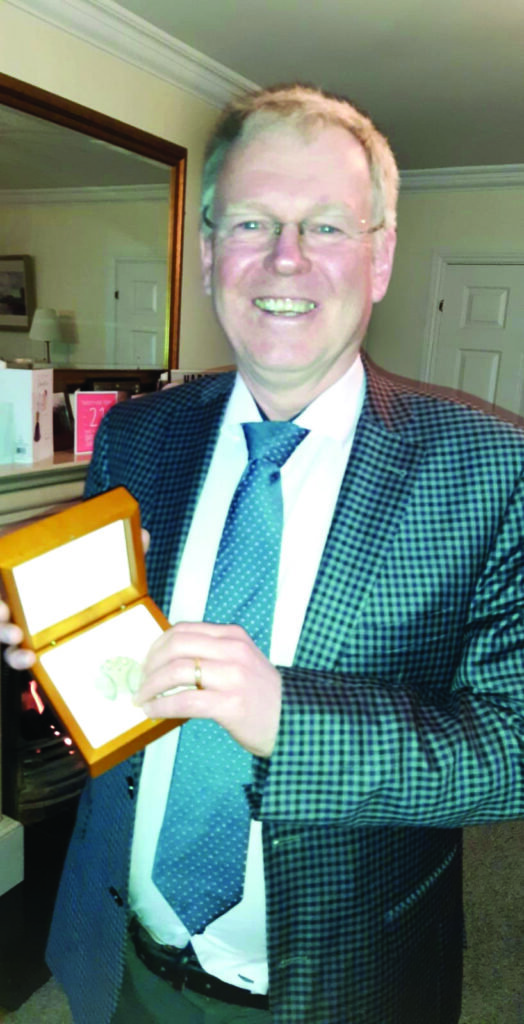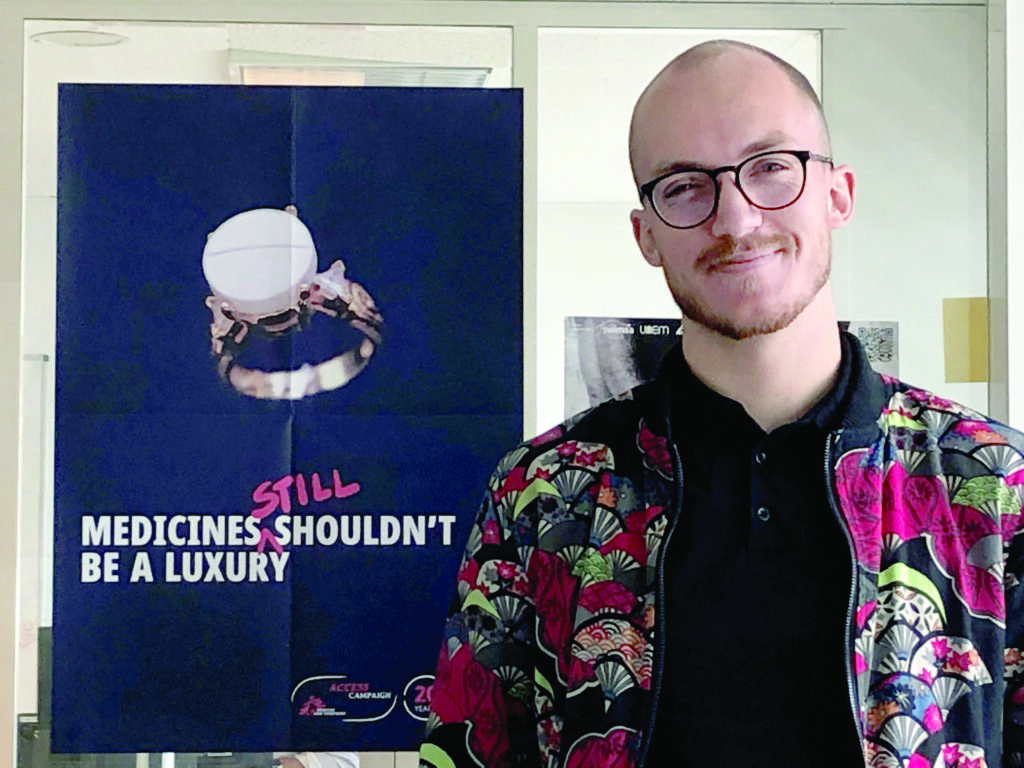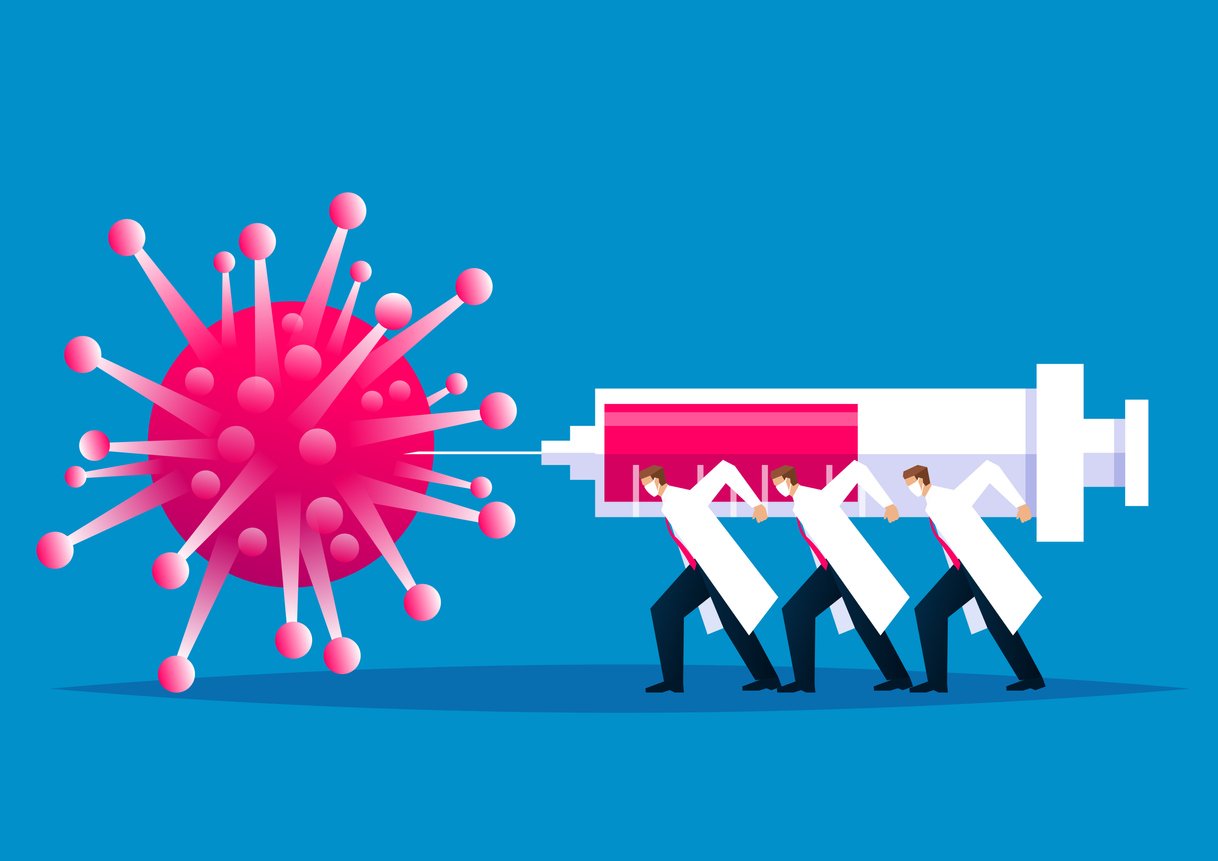The Covid-19 vaccine race is a global news story. But what happens if and when a vaccine is developed? David Lynch looks at looming challenges of access, availability, and distribution
Much of the coverage of the drive for a Covid-19 vaccine is focused on the speed of development, its safety, effectiveness and, most prominently, when it will be available.
According to the World Health Organisation (WHO), there are currently over 169 vaccine candidates under development, with 26 of these in the human trial phase.
In the midst of a global pandemic, the media and the general public are following these developments closely. The arrival of a vaccine is regarded by many medical experts as crucial in the fight against the virus. However, such a development also poses questions that are beginning to come to the fore, both in Ireland and internationally.
Which countries will get the vaccine first? Will poor and middle-income countries be left behind? Will the vaccine be made available on an equal basis within individual countries?
In addition, there will be major planning challenges regarding storage and distribution of the vaccine and concerns about ‘vaccine hesitancy’ in populations. Planning on these matters in Ireland took a recent step forward. The national public health emergency team (NPHET) recommended that a Covid-19 immunisation strategy group be convened, chaired by the Department of Health and informed by the national immunisation advisory committee (NIAC). This group first met on 26 August and again on 16 September.
A Department spokesperson told the Medical Independent (MI) that it intends to meet every three weeks and the meeting minutes will be made available online. This group is charged with planning how the health service prepares for and delivers a future vaccine.
“The group’s membership includes representatives from relevant Government departments, relevant agencies and organisations, including the HSE’s National Immunisation Office (NIO),” said the spokesperson.
The purpose of the group is to advise on and assist in the development of national policy relating to Covid-19 vaccines, including who should be prioritised during the roll-out of any future vaccine. But the worldwide nature of this crisis means every country is making plans.
MI asked Dr Kieran Harkin, a Dublin GP and member of Access to Medicines Ireland (AMI), whether he had any concerns over access and fair distribution of the vaccine on a global scale.
“Certainly,” Dr Harkin said.

“This week Oxfam published an analysis that showed that wealthy nations representing just 13 per cent of the world’s population have already cornered more than half – 51 per cent – of the promised doses of leading Covid-19 vaccine candidates….
“The UK now has advance purchase for five vaccines per head of population, as opposed to Bangladesh with only one vaccine for every nine people.
“So it is almost certain that the vaccine will be distributed globally on the basis of wealth rather than health need in the first instance and that poor countries will face much longer delays and rationing.”
Dr Harkin argued that the “current drug development model” cannot be relied upon to meet the public health needs raised by this pandemic.
“It will not be possible even with the best will in the world to develop, manufacture and distribute enough vaccines on a global scale within a reasonable timeframe if we rely on our current model of patent holder control,” he warned.
“Instead what is needed is open source research published freely and immediately and sharing of know-how in vaccine manufacture. Only in this way can we respond with the speed required to allow global access.”
The WHO Covid-19 Technology Access Pool (C-TAP) is an initiative the Organisation describes as “aimed at making vaccines, tests, treatments, and other health technologies to fight Covid-19 accessible to all”.
Dr Harkin said AMI urges the Irish Government to sign up to C-TAP.
In response to queries from MI, a Department of Foreign Affairs (DFA) spokesperson said Ireland “welcomed” C-TAP and that “consultations are ongoing” across departments and industry concerning the initiative.
The DFA said it looked forward to receiving “additional information on the Technology Access Pool with a view to considering practical engagement”. However, the spokesperson did not indicate when a decision would be made.
“The European Commission, on behalf of member states, is engaging with the WHO to obtain the additional information and clarifications required for industry to engage in the initiative.”
In terms of the role of industry, Dr Harkin said the “chief function” of the pharmaceutical industry is to maximise share holder profit – not to maximise public health gain.
“We have seen how pharma behaved with HIV treatments in the 1990s and more recently with hepatitis C treatment where the price is that which the market will bear – regardless of any public investment in development costs,” he said.
“This will create an unnecessary economic burden on wealthy countries and will mean that vaccines will be unaffordable in less developed countries.”
Industry
The industry in Ireland, represented by the Irish Pharmaceutical Healthcare Association (IPHA), told this newspaper that its response to the pandemic has been “across three areas”, namely science, supply and supports.
“We are searching for vaccines and treatments, keeping manufacturing going, and getting medicines to patients, and contributing financially and in-kind to healthcare, voluntary, and community sectors,” an IPHA spokesperson told MI.
The spokesperson said that there was hope for a breakthrough on a vaccine or vaccines for Covid-19 “over the coming months”.
They added that “there are several vaccine candidates in late-stage clinical trials and some companies have already manufactured large quantities of doses at risk at their plants” around the world.
In regard to distribution and access, the spokesperson said the companies involved in vaccine development and manufacturing will manage with the health authorities the process for ordering and distributing the vaccine if one emerges.
“It is down to companies themselves to make those calls. In turn, the Government here is working with our European partners on the best way to buy and distribute a vaccine for mass immunisation.”
IPHA’s spokesperson added that the industry is partnering with the Government on the national response to the pandemic, “just as it has on preparations for Brexit.” They described this collaboration as “vital” as we “near a scientific breakthrough and repair the huge social and economic damage caused by the pandemic”.
For its part, the Department of Health said Ireland is currently involved in an EU procurement exercise being operated by the European Commission on behalf of member states to procure suitable, safe and effective vaccines in sufficient quantities, to combat Covid-19.
“These arrangements are intended to ensure a coordinated action at the European level to vaccinate the EU population,” the Department spokesperson told this newspaper.
Clearly, challenges around access and distribution are not confined to the nation state.
“Yes, because this is a pandemic, and nobody is safe until everyone is safe,” Dr Manuel Martin, a medical doctor and Medical Innovation and Access Policy Advisor at Médecins Sans Frontières (MSF) told MI.
“From a public health perspective, it is irrational to only vaccinate one’s own population.”
Equality of access
Since the beginning of the crisis, MSF has raised the issue of access and equal distribution of a future Covid-19 vaccine.
“So one big concern that we have is the fact that all the vaccine candidates that are furthest along the development pipeline, a lot of the prospective supply has already been bought up by primarily high income countries,” Dr Martin told MI.
“That obviously significantly limits the amount of doses that are available for global distribution, indeed for distribution through the global solidarity mechanism COVAX.
From a public health perspective it is irrational to only vaccinate one’s own population
“Therefore this impacts significantly the supply of vaccines in the countries in which we typically work, which aren’t normally high income countries.”
While C-TAP is a global initiative to pool intellectual property (IP) rights for tools to combat the pandemic, COVAX is described by the WHO as a facility to “accelerate the development and manufacture of Covid-19 vaccines, and to guarantee fair and equitable access for every country in the world”.
COVAX is co-led by Gavi, the Coalition for Epidemic Preparedness Innovations (CEPI) and WHO. Ireland is a member of COVAX with over 150 other countries. It is notable that the United States is not a member. Some critical observers have noted that in recent months, COVAX has found it difficult to raise sufficient funds to provide future vaccines for the nearly 100 low income countries who have signed up. Alongside this struggle, an increasing number of richer states have struck bilateral deals with industry for future vaccine supply.
Dr Martin said that MSF, as a provider of mass vaccination campaigns, is also concerned “whether we will be able to access a future vaccine” or not.

“It is quite concerning that conversations around the humanitarian buffer stockpile at the WHO haven’t moved anywhere, despite us being reassured at the very beginning that this would be part of the conversation.”
Is this lack of movement due to the reluctance of industry or growing ‘vaccine nationalism’ on behalf of states?
“I think it’s a bit of both,” said Dr Martin.
“So on the one hand pharmaceutical companies have, well many of them at least, have loudly promised to prioritise public health over profit during this pandemic,” he said.
“But nonetheless they are the ones agreeing also to these bilateral deals with countries which they know limits the number of vaccines that would be available for anyone else.”
He said that they could be offering these vaccines through existing international humanitarian mechanisms, such as COVAX.
“It’s unfortunate that even though, again, all of these companies have promised to prioritise public health, some of them have been bypassing the COVAX mechanism and have been, instead, offering middle income countries bilateral deals and that is just not the appropriate way to do things.
“It’s unfortunate that this is happening, it is also understandable that they [the bilateral deals] are happening…. It’s not a surprise, but it’s regrettable, let’s put it that way.
“I think that given the fact that these countries are signing these [bilateral] deals, they should be committing a certain rolling percentage of the supplies that they receive as of next year, to a global solidarity mechanism, which is COVAX and a certain smaller percentage to humanitarian needs,” said Dr Martin.
The emergence of so-called ‘vaccine nationalism’ has been a feature of some of the political reaction to the pandemic, with individual governments signing bilateral agreements with manufacturers to supply their own populations with vaccines ahead of other countries.
“I think at international level there is a lot of talk and a lot of concern around this vaccine nationalism,” said Dr Martin. “Unfortunately there is, we believe, too much complacency around it.”
“Too many people have accepted that is the thing that is going to happen… COVAX is trying to compete with these national deals.”
According to Dr Martin, rich countries who promise to hand over some vaccine doses once they reach a threshold of population coverage (for example, the UK has promised to do so when it reaches 50 per cent) should rather promise to provide doses as a “rolling percentage”.
“The problem with that (waiting to reach a certain threshold) is that the vaccines supply initially is going to be very limited,” said Dr Martin. “By initiavlly, we mean at least the first year, and if everything goes well say maybe the UK will be able to vaccinate 50 per cent of its population within a year, but I think that’s very ambitious.
“I think that they won’t be handing any doses for at least a year, that is another way of putting it. That is why we are calling for a rolling percentage so from the very first we are asking off a certain percentage of vaccines obtained by bilateral deals to go to low and middle income countries.”
Doctors’ role
Doctors working in developed countries are busy with the day-to-day clinical consequences of the pandemic, but do they have a role to play in highlighting issues of international access and equity of treatment?
“I definitely think so,” said Dr Martin.
“I think that especially medical professionals in high income companies should stand in solidarity with healthcare professionals in particular countries that are less likely to get access to the vaccine.
“I would very much welcome seeing doctors in Ireland, in the UK and other countries calling for vaccines to be distributed to healthcare workers in low and middle income countries.
“Frontline healthcare workers are definitely one of the priority groups that need to be vaccinated first.”
Planning to vaccinate a nation
The procurement, storage and roll-out of a future Covid-19 vaccine will be a significant task for the health service in Ireland and globally. The newly established Covid-19 immunisation strategy group will be charged with much of this planning, but as previously reported in MI the HSE’s National Immunisation Office (NIO) has already discussed aspects of the coming challenge. This newspaper reported in August that the NIO had noted that a new national immunisation information system would be required to “accommodate schedule changes” and record a Covid-19 vaccine in the future.
This month, a HSE spokesperson told MI that “NIO has commenced a project to purchase an integrated system, funding availability has been indicated, and we will be making every effort to bring about the project to coincide with any future Covid-19 vaccine plans”.
Vaccine hesitancy has been an issue the HSE has been working on in recent years, particularly during the period when HPV vaccine uptake levels dropped. The HSE spokesperson agreed that “planning for the introduction of any future Covid-19 immunisation programme will require a comprehensive approach” and “effective communication strategies are an important part of all immunisation programmes and will be particularly important for any Covid-19 immunisation programme”.
Last month The Lancet reported on a worldwide survey on global vaccine confidence. It found that there are signs that public trust in vaccine safety is increasing in the EU, “particularly in Finland, France, Italy, and Ireland – as well as in the UK.”
Access to Medicines Ireland (AMI) as an organisation is encouraging the Government to look at possibly utilising a clause to protect public health in the World Trade Organisation (WTO) trade-related intellectual property rights agreement (TRIPS).
“The Government may need to use [this] should it find itself unable to afford or access key medical products, for example, should one country purchase all the stock of a drug,” AMI member and Dublin GP, Dr Kieran Harkin, told MI.
“This is the facility to issue a compulsory licence and enable a product to be manufactured generically without the permission of the patent holder.
“We believe that the Irish Government should place itself in a position to use the safety net provision if required.”
In response to queries regarding any possible use of TRIPS, a Department of Health spokesperson told MI that the “TRIPS agreement
provides various avenues to address potential IP (intellectual property) matters in the case of health emergencies, should voluntary mechanisms fail, not only regarding patents, but also with regard to other IP rights.
“These include general clauses on exceptions or provisions on compulsory licensing. Ireland, as a member of the EU, has consistently supported the use, where necessary and justified, of the flexibilities provided under the TRIPS Agreement and the Doha Declaration with the objective of ensuring effective access to medicines.”
The Department also told MI that Ireland is currently involved in a Joint Procurement Exercise (JPE) being operated by the European Commission to procure Covid-19 vaccines.
Following a Government decision on 21 August, Ireland has opted into an EU advanced purchase agreement (APA) with the British–Swedish drug maker AstraZeneca, which is partnering with Oxford University.
“The EU is also in advanced negotiations with a number of other major pharmaceutical companies,” said the Department spokesperson.
“As and when any of the vaccines being developed become viable, member states would be able to directly purchase that vaccine from the manufacturer on the basis and the conditions laid down in the APA without the need to carry out an additional national procurement procedure.
“Allocation of access to vaccine doses between member states will be according to the population distribution key. The actual purchase and use of the vaccine product will remain under the responsibility of the individual member states.”













Leave a Reply
You must be logged in to post a comment.